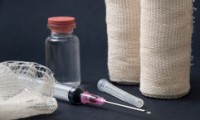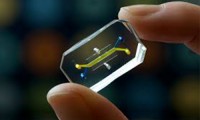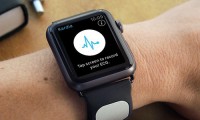-
Quick-acting ‘injectable bandage’ developed from seaweed
- Source: upi
- 520
- April 8, 2018
-
Nine digital health mergers and acquisitions from the first quarter of 2018
- Source: MobiHealthNews
- 498
- April 2, 2018
-
FDA to expand digital health pre-cert program by end of 2018
- Source: Beckers Hospital Review
- 658
- April 2, 2018
-
Bigfoot brings in $55M Series B to propel integrated diabetes platform
- Source: MedCityNews
- 808
- March 30, 2018
-
UCSD researchers develop wearable, 24-hour GI tract monitor
- Source: MobiHealthNews
- 551
- March 27, 2018
-
Sofinnova Partners Leads SafeHeal’s €6 Million Series a Financing Round
- Source: BusinessWire
- 447
- March 26, 2018
-
Brain ‘Stethoscope’ Listens For Silent Seizures
- Source: Neuroscience News
- 1,302
- March 23, 2018
-
AliveCor smartphone add-on, algorithm discern high potassium levels in ECG data
- Source: FierceBiotech
- 737
- March 13, 2018
-
Can An mHealth Kit Improve Outcomes in Workers Comp Treatment?
- Source: mHealth Intelligence
- 791
- March 12, 2018
your submission has already been received.
OK
Subscribe
Please enter a valid Email address!
Submit
The most relevant industry news & insight will be sent to you every two weeks.













